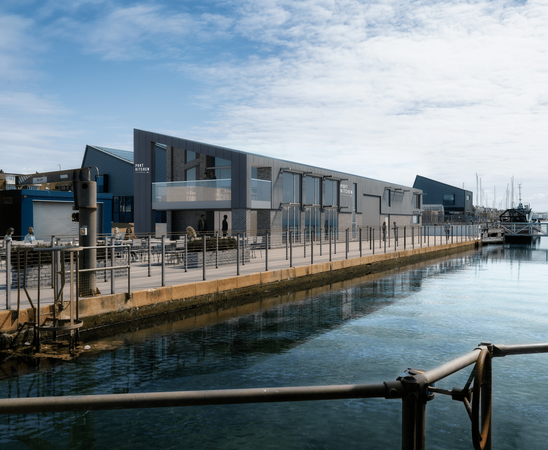Port Kitchen at Shoreham Port announces The Compost Collective; a circular waste collection and composting network
Port Kitchen are delighted to announce The Compost Collective – an innovative way of ensuring that disposable cups and packaging from takeaway drinks and food are disposed of in the most sustainable way possible. We are working with Vegware and Paper Round to unite local businesses, creating a network of bring-back points for consumers to access. Collectively, cafés can ensure their takeaway cups, containers and cutlery are responsibly composted.
Stocking a compostable cup is only part of the job when trying to operate sustainably and it will not achieve its goal if that cup ends up in general waste once it’s finished with. At Port Kitchen we want to close that gap and make it easy for people to dispose of their waste correctly so it can go on to have a useful second life.
To do this, we have teamed up with Vegware who create fully compostable cups and food packaging, and Paper Round who supply on-site bins and provide regular collections. Unlike some other disposable cups, Vegware packaging can be composted as a whole, including the ink used to print a venue’s logo, and the lid. Once collected by Paper Round, the waste will break down in under 12 weeks and be turned into compost to be used in agriculture and landscaping. We will be using some of the compost generated by the Collective in our own herb garden in our terrace planters, in conjunction with community gardening volunteers.

Ambitious sustainability goals are at the heart of Port Kitchen and waste disposal is a huge part of this. But it shouldn’t stop when a customer leaves our premises. We want to be at the helm of creating solutions within our community and The Compost Collective presents a simple, realistic, and affordable answer to waste generation. We are speaking to other local venues and encouraging them to switch to Vegware for their disposables and install a Paper Round bin. This will create a network of disposal points, making it easier for consumers to take part, increasing the impact of our actions.
Cheyenne Plant, Sustainability Manager at Shoreham Port said, “Millions of tonnes of plastic floats in the ocean from waste products like food packaging. These plastics break down into tiny toxic microplastic particles that attract and bind to other pollutants, making themselves more toxic and damaging to marine ecosystems. We take marine conservation seriously and don’t want to contribute to this pollution further.”
